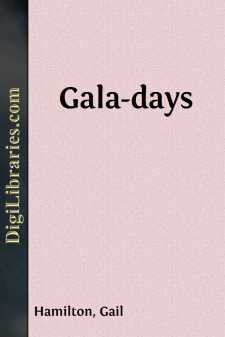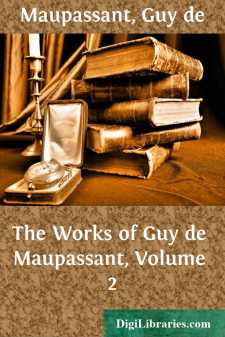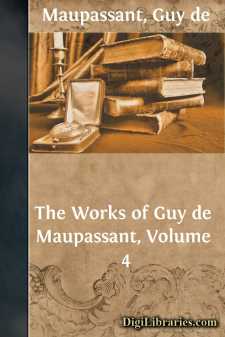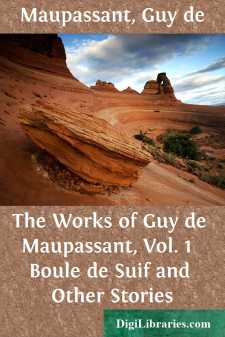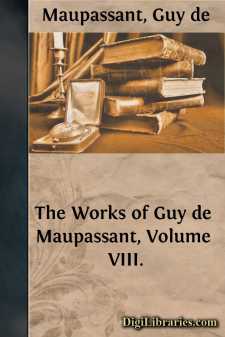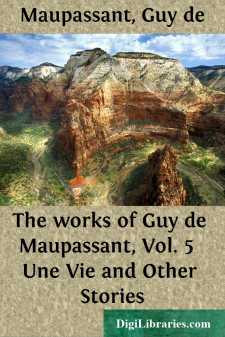Literary Collections
- American 84
- Ancient, Classical & Medieval 14
- Asian 1
- Australian & Oceanian 1
- Canadian 55
- Continental European 121
- English, Irish, Scottish, Welsh 179
- Essays 160
- General 24
- Letters 46
- Middle Eastern 1
Literary Collections Books
Sort by:
MARK TWAIN—A BIOGRAPHICAL SUMMARY SAMUEL LANGHORNE CLEMENS, for nearly half a century known and celebrated as "Mark Twain," was born in Florida, Missouri, on November 30, 1835. He was one of the foremost American philosophers of his day; he was the world's most famous humorist of any day. During the later years of his life he ranked not only as America's chief man of letters, but...
more...
by:
Gail Hamilton
PART I Once there was a great noise in our house,—a thumping and battering and grating. It was my own self dragging my big trunk down from the garret. I did it myself because I wanted it done. If I had said, "Halicarnassus, will you fetch my trunk down?" he would have asked me what trunk? and what did I want of it? and would not the other one be better? and couldn't I wait till after...
more...
by:
Andrew Lang
Returning from Sydney at the end of October 1890, Stevenson and his wife at once took up their abode in the wooden four-roomed cottage, or “rough barrack,” as he calls it, which had been built for them in the clearing at Vailima during the months of their absence at Sydney and on their cruise in the Equator. Mr. Lloyd Osbourne in the meantime had started for England to wind up the family affairs at...
more...
by:
Eliot Gregory
There existed formerly, in diplomatic circles, a curious custom, since fallen into disuse, entitled the Pêle Mêle, contrived doubtless by some distracted Master of Ceremonies to quell the endless jealousies and quarrels for precedence between courtiers and diplomatists of contending pretensions. Under this rule no rank was recognized, each person being allowed at banquet, fête, or other public...
more...
by:
Marie Corelli
CHAPTER I A cloud floated slowly above the mountain peak. Vast, fleecy and white as the crested foam of a sea-wave, it sailed through the sky with a divine air of majesty, seeming almost to express a consciousness of its own grandeur. Over a spacious tract of Southern California it extended its snowy canopy, moving from the distant Pacific Ocean across the heights of the Sierra Madre, now and then...
more...
I Little George was making hills of sand in one of the walks; he took it up with both his hands, made it into a pyramid, and then put a chestnut leaf on the top, and his father, sitting on an iron chair was looking at him with concentrated and affectionate attention, and saw nobody but him in that small public garden which was full of people. All along the circular road other children were occupied in...
more...
Count Eustache d'Etchegorry's solitary country house had the appearance of a poor man's home, where people do not have enough to eat every day in the week, where the bottles are more frequently filled at the pump than in the cellar, and where they wait until it is dark before lighting the candles. It was an old and sordid building; the walls were crumbling to pieces, the grated, iron...
more...
The first aim of art, no doubt, is the representation of things as they are. But then things are as our eyes see them and as our minds make them; and it is thus of primary importance for the critic to distinguish the precise qualities of the eyes and minds which make the world into imaginative literature. Reality may be so definite and so false, just as it may be so fantastic and so true; and, among...
more...
OF "THE NOVEL" do not intend in these pages to put in a plea for this little novel. On the contrary, the ideas I shall try to set forth will rather involve a criticism of the class of psychological analysis which I have undertaken in Pierre et Jean. I propose to treat of novels in general. I am not the only writer who finds himself taken to task in the same terms each time he brings out a new...
more...
The most robust and masculine of recent French novelists is a typical Norman, sprung from an ancient noble family, originally of Lorraine, but long settled in the Pays de Caux. The traveler from England towards Paris, soon after leaving Dieppe, sees on his left hand, immediately beyond the station of St. Aubin, a handsome sixteenth-century house, the Château de Miromesnil, on a hill above the railway....
more...



